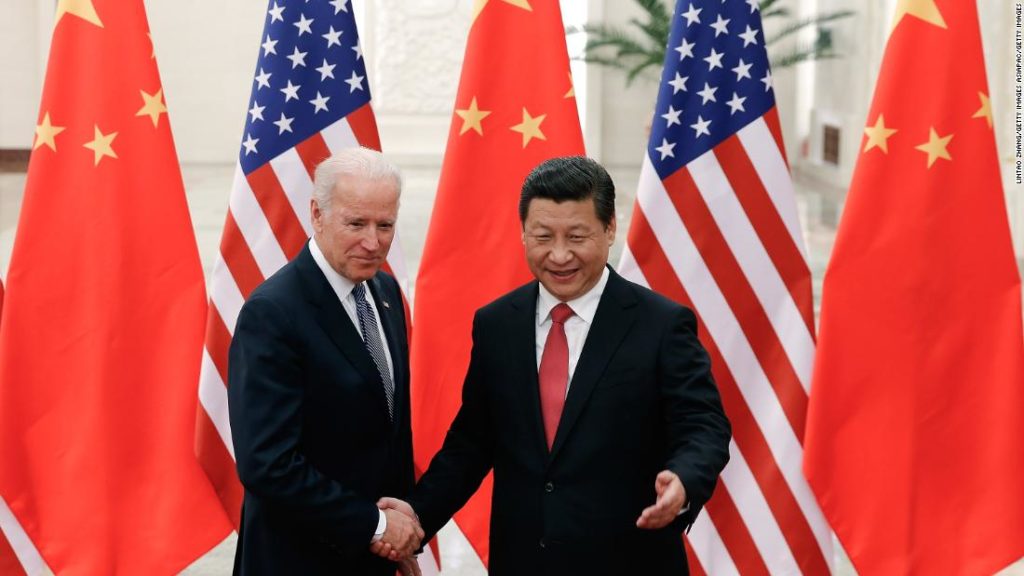Comprehensive it might have been, but according to Chinese state media, what robustness there was did not result in any tension or bad feeling — quite the opposite.
That account went into considerably more detail about the call than the White House readout, and yet the issues of Taiwan, Hong Kong and Xinjiang, such pivotal points according to Washington’s account, are relegated to a single sentence in the fourteenth paragraph. Xi is quoted as dismissing Biden’s concerns out of hand, saying all three areas are “China’s internal affairs and concern China’s sovereignty and territorial integrity.”
“The US side should respect China’s core interests and act prudently,” Xi is quoted as saying.
Without a recording of the call itself, there is no way to tell which account is the most accurate; in their summaries, both sides are communicating to a domestic audience, Biden in claiming to be tough on issues of human rights, Xi in saying he was equally tough in pushing back.
Though Biden may wish to appear tough on China — and may pursue policies that take this stance beyond the rhetorical — he is dealing with a country that is more powerful than it has ever been, one that weathered an intensely hostile Trump administration, and has come largely out of the coronavirus pandemic stronger and more secure, while the US remains mired in varying degrees of political and social strife.
He is also dealing with a country that is more than adept at playing this game. The reaction to the Biden call in China is that it represents a chance for a new beginning, suggesting Xi and his administration are unconcerned by Biden’s seemingly tough stance.
Biden is not the first US leader in recent years to address uncomfortable issues when talking with senior Chinese officials and diplomats. And as previous US administrations have shown, denouncing Beijing publicly doesn’t necessarily preclude the two sides from working together.
Bill Clinton, who once condemned the “butchers of Beijing” following the 1989 Tiananmen Square massacre, also lobbied for China to join the World Trade Organization (WHO), massively boosting the Chinese economy and the country’s standing on the global stage.
His successors, George W. Bush and Barack Obama, while occasionally experiencing moments of tension with Beijing, also sought to partner with China on issues such as North Korea, Iran, and cybersecurity, as well as boosting economic engagement.
However, the Biden administration has also made clear there are issues such as climate change in which the two sides share a national interest, and which it will seek cooperation with Beijing. Of more potential concern to China, Biden has also suggested he could rally European leaders and other allies — more willing to listen to him than Trump — in opposing Beijing on various issues, though how this gels with also wanting Chinese engagement in other areas remains to be seen.
Since Clinton, Washington has been criticized by China hawks for being too soft on Beijing, for not using the leverage it had while the two powers were unequal. Biden is perhaps the first US leader for whom this is not necessarily an option, and he will be dealing with a superpower that is on an equal footing.
You may also like
-
Afghanistan: Civilian casualties hit record high amid US withdrawal, UN says
-
How Taiwan is trying to defend against a cyber ‘World War III’
-
Pandemic travel news this week: Quarantine escapes and airplane disguises
-
Why would anyone trust Brexit Britain again?
-
Black fungus: A second crisis is killing survivors of India’s worst Covid wave

